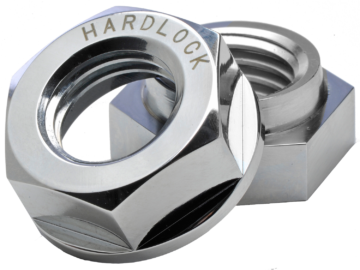Safety is Power, The Worlds Strongest Self-locking Nut!
When discussing methods to secure bolts and prevent them from loosening, the commonly mentioned options are the well-known nylon nut and the metal cone nut. These nuts fall under the category of prevailing torque type nuts, which have a separate ISO standard, DIN 985/ISO 7044, to classify them apart from regular nuts.
Essentially, a prevailing torque type nut requires torque to rotate along the threads before seating onto the surface of the assembly parts. Unlike a free spinning nut, it relies on the constant collision between the bolt’s threads and the initially deformed threads of the nut. With each use, these nuts typically lose around 50% of their resistance torque and can only withstand vibrations up to the level of resistance offered by the nut’s deformation. The more deformation, the more challenging it becomes to torque the nut in place initially.
Interestingly, in Japan, nylon nuts are not commonly used. Instead, a popular locknut has prevailed in the Japanese market for 50 years. This locknut is free spinning, reusable, and complies with the same standard as the regular nut (DIN 934/ISO 4032). It applies the locking function after being seated on the surface of the parts.
If you’re interested, you can assess whether this locknut meets your requirements by visiting the following link.
To send a detail and summary UP-TO-DATE presentation please contact us on info@aymara.cz (Czech, English and Polish version).


